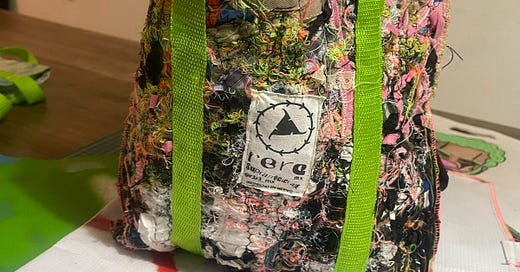Electoral Waste: These Brands Make Bags from Campaign Banners
Just in Mexico City, it is estimated that the 2024 electoral process will leave up to 25,000 tons of electoral waste.
Text: Mariana Velázquez
The political campaign has left the cities of the Mexican Republic covered with advertising, billboards, brochures, and banners featuring the faces and logos of the candidates. But, once the 2024 electoral process concludes, what will happen to the political propaganda waste? In Mexico, some fashion creatives have found an opportu…
Continúa leyendo con una prueba gratuita de 7 días
Suscríbete a Semanario de Moda para seguir leyendo este post y obtener 7 días de acceso gratis al archivo completo de posts.





